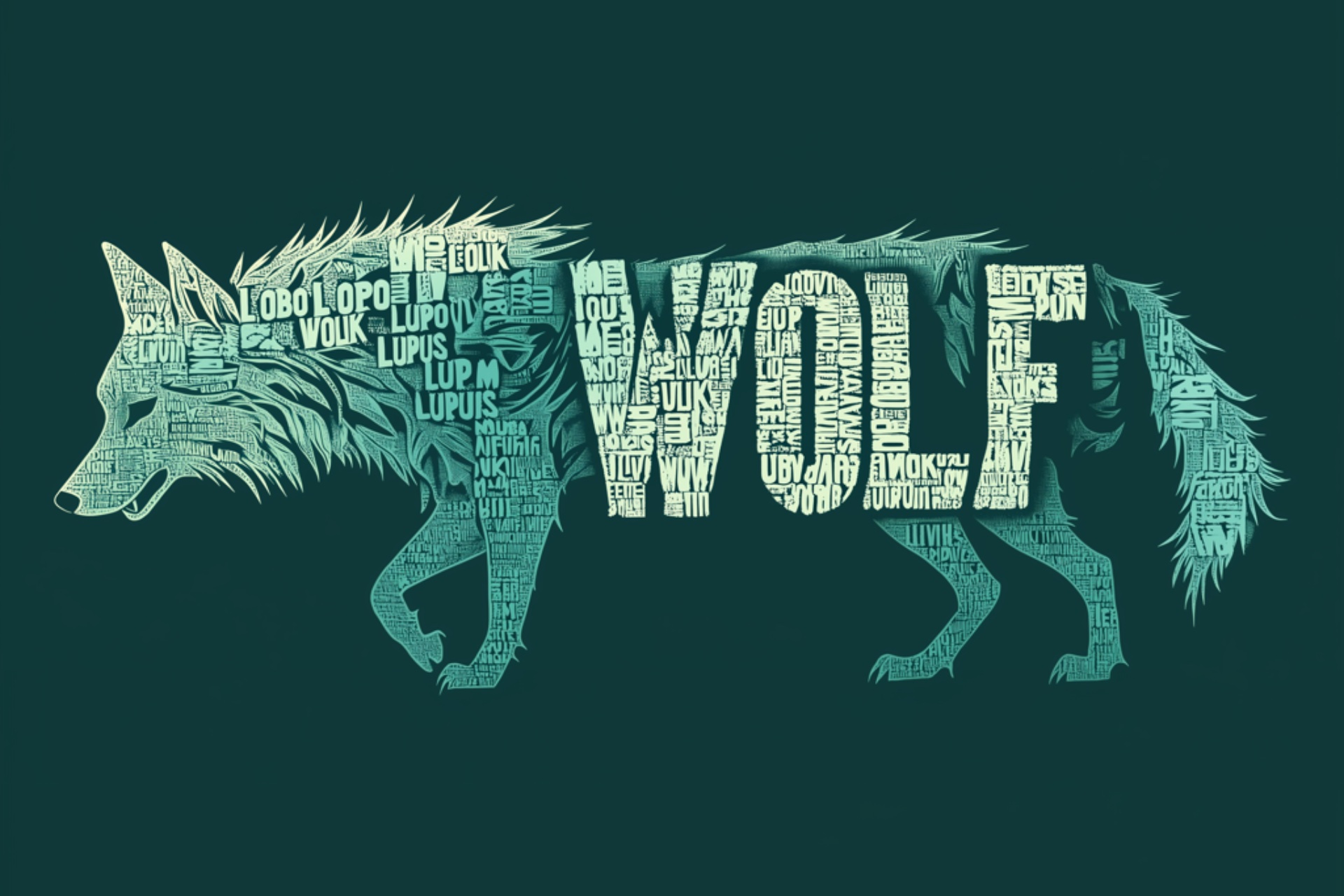The Wolf Within
The Wolf Within: Exploring the Etymology of the Word „Wolf” and Its Legacy in Surnames Across Cultures
The wolf, a creature that has captivated human imagination for centuries, is not only a symbol of strength and resilience but also a name that echoes through the corridors of language and culture. From ancient myths to modern-day surnames, the word „wolf” has left an indelible mark on many languages and continues to influence how we perceive ourselves and the world around us. In this blog, we’ll delve into the fascinating etymology of the word „wolf” and explore how it has shaped surnames in various cultures, revealing connections to power, courage, and the wild.
The Etymology of „Wolf”
The story of the word „wolf” begins deep in the history of language. Its roots can be traced back to the Proto-Indo-European language, the prehistoric ancestor of many European and South Asian languages. In Proto-Indo-European, the word for wolf was wĺ̥kʷos. This root gave rise to similar words in various Indo-European languages: in Germanic languages, we see wulf (Old English), wolf (German), and ulfr (Old Norse). Meanwhile, in Latin, the word for wolf was lupus, which also influenced many Romance languages, including lupo in Italian and loup in French.
Over time, the word „wolf” evolved in different regions, but its core meaning remained unchanged — it referred to the powerful, cunning, and often feared animal that roamed wild landscapes. This ancient word has not only left its mark on language but also been adopted as a symbol of strength, independence, and wild beauty in various cultures.
„Wolf” and Its Influence on Surnames
Throughout history, surnames have been a way to identify people by their lineage, profession, or characteristic features. The word „wolf” has played a prominent role in shaping many surnames across cultures, signifying courage, wildness, and sometimes even nobility.
In Germany, a common surname derived from the word „wolf” is Wolf itself. This surname, meaning „the wolf,” may have originally been given to individuals who were associated with the animal in some way — perhaps through a familial connection to hunting, the wild, or even their fierceness and bravery. It is also a surname that has been adopted by noble families, often signifying a person of strength and valor. The surname Wolfram is another Germanic variation, combining wolf with the Old High German hram, meaning „raven,” which together can be interpreted as „wolf raven,” a poetic combination of two powerful animals.
In Slavic cultures, surnames like Wilk in Polish and Vuk in Serbian both derive from the word for „wolf.” These names not only reflect the animal’s symbolic strength but also often hint at an ancestor’s wild nature or association with wolves, whether through hunting or tribal lore. The name Wilk is relatively common in Poland and reflects a deep-rooted cultural reverence for the animal.
In Russia, the surname Volkov (Волков) carries a similar meaning. Derived from the Russian word for wolf, волк (volk), this surname could indicate someone from a family with qualities akin to the wolf — perhaps a protector, a fighter, or a person with a connection to the wilderness. It’s also a name borne by many influential figures throughout Russian history, further embedding the association between the wolf and personal strength.
In English, surnames like Wolfenden (from Old English wulf meaning „wolf” and denu meaning „valley”) evoke images of someone who might have lived near a valley inhabited by wolves, or perhaps a person who carried the fierce qualities of the animal. Another example is the surname Woolf, a variation of the word „wolf,” often used in the United Kingdom and among Jewish communities in Eastern Europe. The surname Woolf is a reminder of the strong, wild spirit of the wolf and its enduring presence in human culture.
The Wolf’s Legacy in Modern Times
The legacy of the wolf can still be seen in modern surnames, and the strength they represent is just as relevant today as it was centuries ago. Whether it’s the fierce protector, the resilient survivor, or the independent spirit, the wolf continues to inspire. People with surnames like Wolf, Volkov, or Wilk are often seen as embodying the very traits the wolf represents — power, independence, and loyalty.
In today’s world, we also see the wolf influencing other cultural aspects. The term „lone wolf,” for instance, is frequently used to describe someone who thrives independently, often in a solitary pursuit. It suggests a person who is strong, self-reliant, and capable of achieving great things on their own — much like the wolf in the wild.
Moreover, in the creative industries, the wolf continues to inspire artists, writers, and musicians. From the famous Wolves albums by artists like Kanye West to books like The Call of the Wild by Jack London, the wolf’s symbolism remains central to storytelling and self-expression. Surnames that carry the wolf’s legacy continue to evoke these same ideas of strength, resilience, and autonomy.
Conclusion: The Eternal Spirit of the Wolf
The word „wolf” has traveled a long way through time, from its ancient Proto-Indo-European roots to its widespread use in modern surnames. Across different cultures, the wolf is seen as a symbol of wild beauty, strength, and independence — qualities that continue to resonate in the world today. Surnames like Wolf, Volkov, Wilk, and Wolfram remind us of the enduring power of the wolf and its place in our collective cultural imagination.
Whether through ancient myths, family traditions, or modern expressions, the legacy of the wolf remains alive. It reminds us of the wild spirit within ourselves, urging us to be strong, independent, and courageous. So, the next time you meet someone with a wolf-derived surname, you may just be meeting someone who carries within them the power of this magnificent animal — a reminder of the ancient and enduring connection between humanity and the wild.


